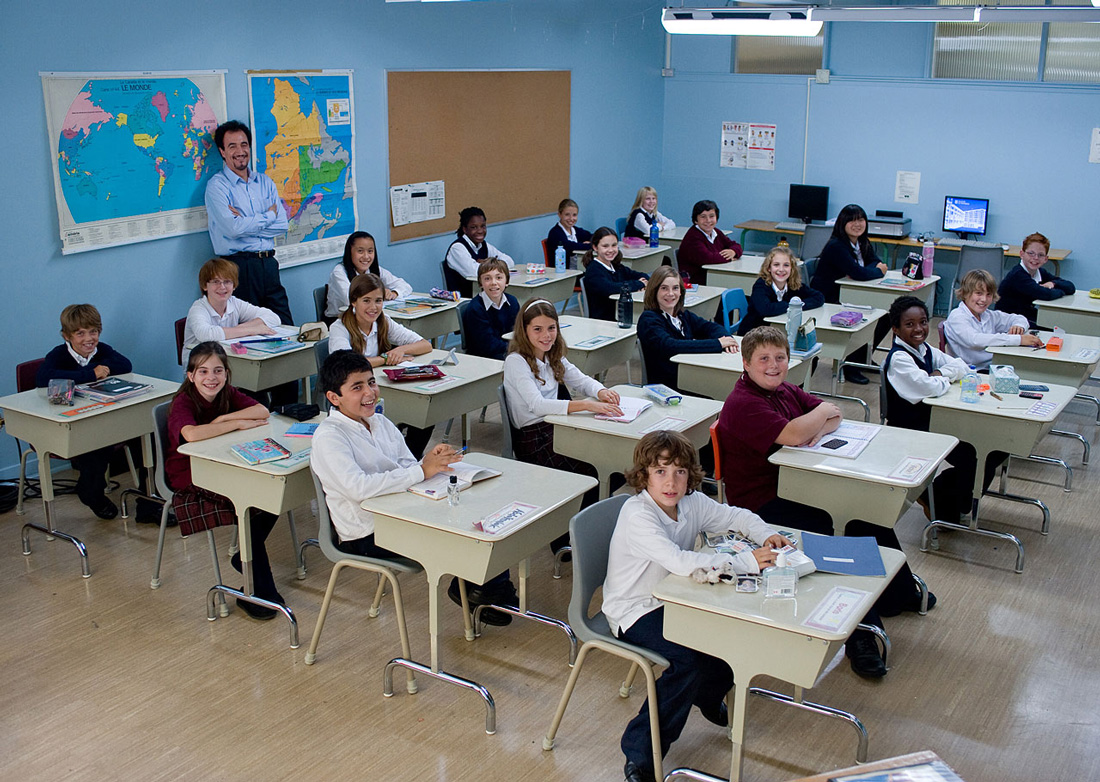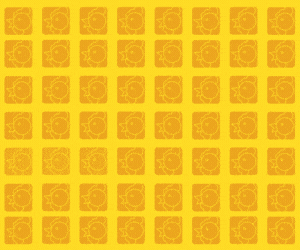The French-Canadian drama Monsieur Lazhar was nominated for the Oscar for Best Foreign Language Film this past year, and there were observers who tipped the movie to take home the statuette. It wound up losing to A Separation, but you can see why it had its backers: This is the sort of movie that nominating committees tend to love: intelligent, tasteful, virtuous, and a little too fussy for its own good. Even though this film falls short of greatness, it still pays dividends.
The story opens in the dead of winter in Montreal, when a 12-year-old schoolboy named Simon (Émilien Néron) goes to take cartons of milk into his classroom between periods, only to find the door locked and the corpse of his favorite teacher hanging from a pipe near the ceiling. The shot that follows is typical of the movie’s stripped-down aesthetic, as the camera stays by the door while its gaze follows Simon as he runs off down the hall to get help, eventually bringing back a teacher who arrives in time to keep most of the other kids away from the door so that they don’t see.
The class is taken over by Bachir Lazhar (Mohamed Fellag), an Algerian immigrant who gets the job because he’s the only available candidate who’s unafraid to step into such a loaded situation. The elegant, soft-spoken, cheerful Lazhar can’t help but notice that his French grammar is out of date and his old-line educational methods are at odds with the other teachers’. Yet he’s the only one who’s able to come to grips with the way the kids have been affected by the suicide, and he well knows that dealing with it will take more than just a positive attitude.
Writer-director Philippe Falardeau is full of fine psychological insights into this situation, never more so than when a particularly smart girl named Alice (Sophie Nélisse) uses a class presentation to point out that the grown-ups around the school are the ones who don’t want to talk about the suicide. Indeed, when Lazhar later advises the students not to seek any meaning in what happened, that’s exactly what the parents and school administrators don’t want to hear, even though Lazhar has had more experience with tragedy than anyone. (The script is based on a stage play by Évelyne de la Chenelière, who shows up on screen as Alice’s mother.) The proceedings could easily turn goopy in the wrong hands, but Falardeau steers well clear of the Hollywood-style excesses of inspirational teacher movies, sparing us any homilies about death or suggestions that Lazhar’s the only one who cares about the kids.
By the same token, though, Falardeau’s carefulness keeps the movie from ever taking flight. The only time the movie has the audacity to be weird and random is a bit when Lazhar, thinking himself alone in his classroom, shakes his ass to some Middle Eastern music on the soundtrack that only he can hear. Delightful as that is, it’s an isolated exception. We don’t feel any sense of Lazhar being thrilled at connecting with these students or satisfied at settling into a culture so different from his own. The movie’s one big emotional outburst comes from Simon late in the film, and rather than bringing us into the boy’s grief and letting it give voice for the rest of the class, the filmmaker just seems uncomfortable with it.
Still, the kids are well-directed enough to come off like kids instead of actors, and the center is well held by Fellag, a well-known comedian in France under his surname alone. (Indeed, the movie’s closing credits bill him simply as Fellag.) Many Francophone critics who are more familiar with his comedy act than I am have remarked on how well the material fits his persona. Underneath Lazhar’s conviviality, Fellag effortlessly projects the heartache that weighs the teacher down. This sort of understanding of his actors is one of many gifts that Falardeau demonstrates. Now it’s a matter of him trusting his powers and letting fly.
[box_info]
Monsieur Lazhar
Starring Mohamed Fellag. Written and directed by Philippe Falardeau, based on Évelyne de la Chenelière’s play. Rated PG-13. Fri-Sun. Modern Art Museum of Fort Worth, 3200 Darnell St, FW. $6.50-8.50. 817-738-9215.
[/box_info]












